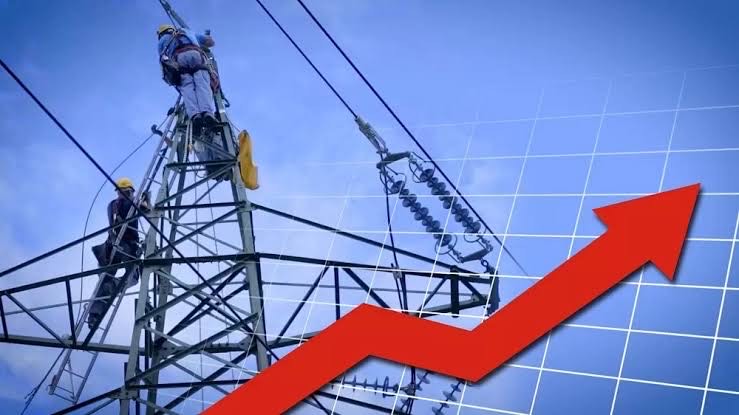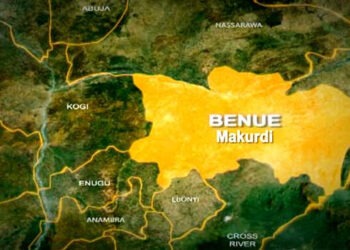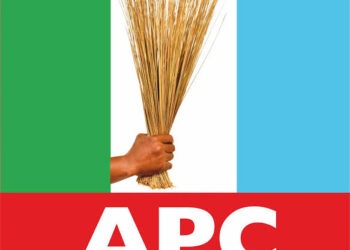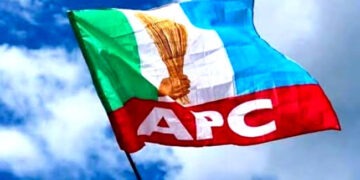The Labour leader expressed concern about the challenging situation workers are facing due to the rise in electricity tariffs: “The lack of growth in wages, combined with increases in electricity and fuel prices, is driving workers to their breaking point.”
Ajaero, the Labour leader also highlighted the negative impact on small and medium-sized businesses, essential for the informal economy in Nigeria, contributing to the country’s growing unemployment problem.
Ajaero restated the workers’ opposition to the recent tariff increase and the segmentation of customers into different categories. The labour union additionally called on the government to uphold the agreement made in September 2021, reaffirmed in 2023, which requires a halt to further tariff hikes until specific conditions are met.
These conditions include a reassessment of the privatization process, shifting away from using dollars to price gas for electricity production, and the widespread distribution of prepaid meters.
Before any tariff changes, he emphasized that the NLC expects the NERC to engage in discussions with stakeholders, a step he believed was overlooked in the recent rise.

He stated, “Workers are the most impacted by the increase in electricity tariffs. Unlike business owners, salaried workers cannot increase their income when utility costs rise. “The lack of wage growth in the face of rising electricity and fuel prices pushes workers beyond their limits of coping and survival.
“Small and medium enterprises, which provide jobs for millions in the informal economy, are severely affected by the higher
energy costs, leading to business closures.” In response, the chairman of NERC, Sanusi Garba, acknowledged the peaceful nature of the labour protest and the issues raised.
He assured that the commission would take into consideration concerns about tariff affordability and the need to diversify energy sources, pointing out the operational status of the Zungeru 700 megawatt power plant as a positive development.
The NLC and TUC staged protests at the headquarters of Jos Electricity Distribution Company (JED) on Ahmadu Way in the Plateau State capital. They closed off the JED tower office as directed by their national secretariat.
Reporters noticed that employees of the electricity company were denied entry by an enforcement team as early as 6:30 am.
The spokesperson for Jos DisCo, Dr. Elijah Adankole, who confirmed the situation to the press, stated, “The JED office has been closed off. We were locked out when we arrived at the office this morning. It has been sealed, no one is permitted to enter. Even myself (the spokesperson) and the chief security officer were barred from entering.”
In Ebonyi State, organized labour members shut down the offices of NERC and Enugu Electricity Distribution Company (EEDC) in Abakaliki, the state capital, in protest of the electricity tariff increase. During the demonstration, labour leaders blocked the NERC office at Nsugbe Street, Abakaliki, and sang solidarity songs.
Anticipating the picketing of their office, NERC staff had locked up and abandoned the building. Despite the absence of NERC officials, labour leaders obstructed the entrance gate of the NERC office for approximately an hour to prevent anyone from entering.
The headquarters of Benin Electricity Distribution Company (BEDC) in Akure, the capital of Ondo State has also been closed down by the NLC and TUC.
Union members blocked the main entrances of BEDC, leaving staff stranded outside the buildings. Labour leaders arrived early at the BEDC head office in Akure to prevent employees from entering by blocking the main gate.
In Bayelsa State, the NLC and TUC rejected the government’s electricity tariff increase due to the current economic challenges in the country and picketed the office of the Port Harcourt Electricity Distribution Company (PHED) in Yenagoa.
The TUC state chairman, Comrade Julius Laye, criticized the introduction of additional taxes on Nigerians already suffering from hardships.
He questioned the government’s decision to implement two taxes, the electricity tariff increase and cyber security tax, amidst the existing hardship in the country.
He called on the government to consider the feelings of Nigerians at this time and give the masses some relief.
The Adamawa State chapter of NLC also closed down the regional offices of the Yola Electricity Distribution Company (YEDC) and the offices of the Electricity Regulatory Commission of Nigeria (ERCN).
The state NLC chairman, Mr. Emmanuel Fashe, explained to union members at the picketed offices in Yola that the action was taken to protest the high electricity tariffs.
“Our decision to picket these offices was based on the directive from our headquarters and is part of a nationwide action,” he said.

In Osun State, organized labor activists blocked the main entrance of the Ibadan Electricity Distribution Company (IBEDC) Business Hub in Osogbo to protest the recent electricity tariff increase.
Union leaders secured the entrance gates of the IBEDC Business Hub and other sub-offices in Osogbo, instructing security personnel not to allow anyone to enter.
TUC state chairman, Abimbola Fasasi, stated that the protest was a way to show discontent and inform the federal government that Nigerians find the electricity tariff hike unacceptable.
In Kebbi State, labor unions closed offices following directives from their national headquarters.
They took action at KEDCO and NERC offices in Birnin Kebbi, ensuring all offices were locked and staff complied with the union’s orders.
Meanwhile, In Ekiti State, workers protested the electricity tariff increase by storming the offices of Electricity Distribution Companies (DisCos).





































